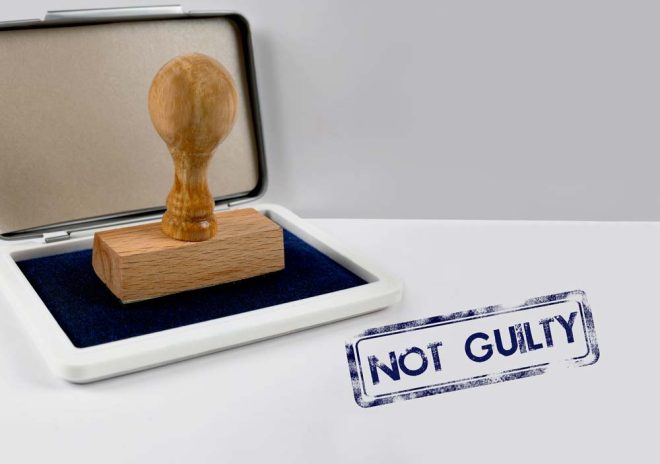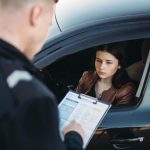
Receiving a parking or speeding ticket in New Jersey is stressful. Especially if you feel the ticket is unwarranted, it’s imperative to clear your name (not only for peace of mind but to avoid being held accountable for costly fees & fines).
You have two choices:
- Pay the ticket and accept the points on your license
- Fight the decision / plead not guilty
Points on a driver’s license, in particular, can be detrimental. While insurance companies don’t technically leverage points on a driver’s license to determine someone’s rates, if you’re issued points after an accident or incident, the result is the same (your premiums will increase).
Therefore, if you feel you have an honest case to make, fighting a ticket is the best course of action. Here’s what you need to know when pleading not guilty.
When can I plead not guilty against tickets in New Jersey?
Regardless of your summons, you can plead not guilty to parking and traffic offenses in NJ. While all violations can be contested, some are notably harder to defend against than others. Fortunately, even in challenging situations, you can seek the support of a legal attorney or lawyer.
The driving and vehicular offenses in NJ you’ll often need a lawyer to help defend you include:
- Speeding excessively
- Refusal of a breathalyzer
- Driving while intoxicated
- Driving without insurance
- Driving recklessly
- Driving away from an accident
- Driving with a suspended license
- Driving while using a cellphone/texting
Generally, these offenses are regarded as the most serious in NJ. If your ticket or charge doesn’t appear in the list above, you may be able to defend yourself in court without a lawyer. For example, speeding 5-10 miles over the limit, passing school buses, or failing to signal, may be considered ‘minor’ charges.
Pleading not guilty to driving offenses in New Jersey – what happens next?
Before you plead not guilty to any charges, you’ll want to make sure you understand the ticket. The most crucial detail is the court date, which tells you when you can attend court to plead your case.
You should always inform the NJMC that you intend to dispute a charge as soon as possible. Ideally, this will be done within three days of the ticket date.
If you can’t make the scheduled court date on your ticket, you can enter a plea by email instead. However, you’ll need to seek the support of a traffic lawyer who can help prepare your case ahead of time.
It’s crucial to never (ever ever) skip a court date, as the repercussions are pretty steep.
Should I plead not guilty?
This is a fundamental question to ask yourself before responding to your ticket. Above all, take a moment to thoroughly consider the available proof that will help prove your innocence.
In addition, you’ll want to consider the potential repercussions of what happens if you are proven guilty. For example, if the NJMC decides you are, in fact, liable for charges, you will likely receive points on your driver’s license. Depending on your current license standing, this could result in a suspension.
You may even face jail time if you already have other open court dates (or have committed additional offenses).
As always, it’s recommended to speak to a lawyer (perhaps who specializes in traffic offenses) if you are uncertain about any of the above points.
Should I meet with the prosecutor?
When possible, yes. Arranging a meeting with your prosecutor can result in fewer points on your license and a lower charge (than you’d otherwise expect for a comparable ticket). This is not guaranteed, but it never hurts to explain your situation and express your genuine interest in resolving any outstanding issues.
What happens when I appear in court?
When you plead not guilty and state your case in court, a decision by the judge will determine whether or not you are liable to pay fees, accrue points, or even serve time in jail.
The good news is that if you are found not guilty, you will not have to pay fines or face any repercussions. This may also reduce the amount of money you pay via insurance (depending on the time frame).
On the other side, if you are found guilty, you may face a suspended license, be required to attend driving school, or pay a fine. In some cases, depending on your criminal record, you may also face community service or (as mentioned) time in jail.
In a worst-case scenario, you can appeal a guilty verdict within 20 days. You will typically need to pay an additional filing fee of $100 to appeal.
When appealing against a guilty verdict, you must file forms with the court and prosecutor. Filing fees can be made to the Criminal Division treasurer.
Should I get a lawyer to help me with traffic violations?
Knowing your rights when facing parking or other traffic fines in New Jersey is always good. Therefore, before you plead not guilty to a traffic violation in NJ or elsewhere, always be open to the idea of consulting a lawyer or legal counsel. They will help you understand your rights and thoroughly review the potential repercussions of each option (depending on the plea you wish to make).






